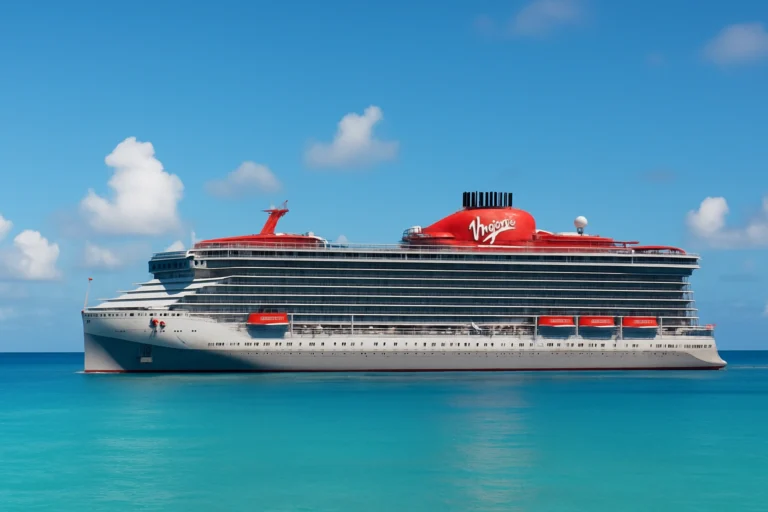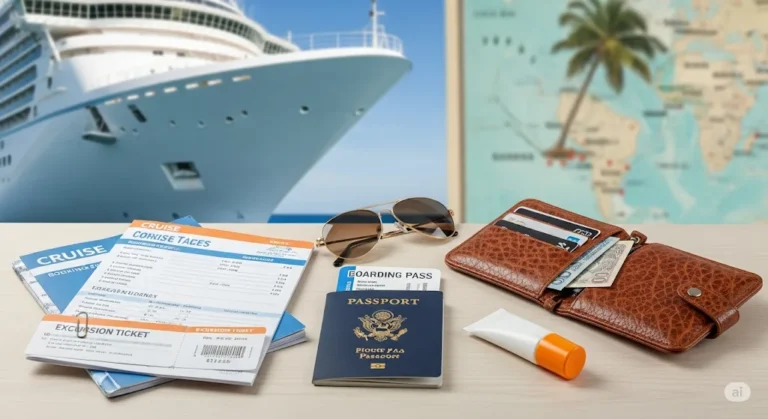Cruise Ship Salaries Exposed: What Crew Really Earn Hourly
💸 Unveiling Cruise Ship Earnings: An Hourly Breakdown for Crew Members
The allure of working on a cruise ship is undeniable: travel the world, meet diverse people, and save money. But beneath the glamorous façade of exotic ports and endless oceans lies a rigorous work environment, often characterized by long hours and demanding schedules. While many are curious about the actual earnings, **cruise ship salaries** are rarely discussed transparently. This guide aims to pull back the curtain, exposing what crew members, from entry-level to management, truly earn on an hourly basis, once all factors are considered. We’ll delve into departmental pay scales, hidden benefits, unexpected deductions, and the ultimate financial reality of a life at sea, offering a clear picture for anyone considering this unique career path.
💡 Expert Tip: Don’t Just Look at Monthly Pay!
When evaluating **cruise ship salaries**, it’s crucial to factor in your daily hours and the unique “all-inclusive” lifestyle. Free accommodation, food, and often medical care significantly boost the real value of your earnings, even if the hourly rate seems low.
Factors Influencing Cruise Ship Salaries
Several variables impact how much a crew member takes home. Understanding these is essential for a realistic financial outlook:
1. Department & Position:
- Hotel Operations: (e.g., waiters, cabin stewards, bar staff, chefs, guest services) These make up the largest percentage of the crew and often have varied pay structures, heavily reliant on tips.
- Deck & Engine: (e.g., officers, engineers, able seamen) Generally higher, fixed salaries due to specialized skills and regulatory requirements.
- Entertainment & Retail: (e.g., performers, shop assistants, spa therapists) A mix of fixed salaries and commission-based earnings.
- Medical: (e.g., doctors, nurses) High, fixed salaries due to specialized training and critical roles.
2. Cruise Line & Ship Size:
- Luxury cruise lines often offer higher pay than budget-friendly lines. Larger ships may have more positions, but competition can also be higher.
3. Nationality & Contract Length:
- While less common now, historical disparities in pay existed based on nationality. Longer contracts (e.g., 6-9 months) might offer slightly better monthly rates or bonuses.
4. Tipping Structure:
- For many service roles, tips (either voluntary guest tips or auto-gratuities distributed by the cruise line) form a substantial portion of the actual income.
Hourly Earnings Breakdown (Estimated)
Calculating an “hourly wage” on a cruise ship can be tricky due to fluctuating hours (often 10-14 hours/day, 7 days a week) and the inclusion of tips. Below are approximate hourly equivalents based on common monthly salaries and typical work hours (assuming an average of 11 hours/day, 30 days/month = 330 hours/month).
Hotel Operations (Hourly Equivalent):
- Entry-Level (e.g., Assistant Waiter, Junior Cabin Steward): $3 – $7/hour (often low base, heavily reliant on tips)
- Mid-Level (e.g., Waiter, Cabin Steward): $7 – $15/hour (base + tips)
- Supervisory (e.g., Head Waiter, Assistant Maitre d’): $15 – $25/hour (fixed salary + tips override)
Deck & Engine (Hourly Equivalent):
- Entry-Level (e.g., General Purpose Rating): $8 – $15/hour
- Officers (e.g., 3rd Officer, 2nd Engineer): $25 – $50+/hour (fixed salaries)
Entertainment & Retail (Hourly Equivalent):
- Performers (e.g., Dancers, Singers): $15 – $30/hour (depending on experience and role)
- Shop Assistants: $5 – $12/hour (base + commission)
Specialized Roles (Hourly Equivalent):
- Medical Staff (Doctors, Nurses): $40 – $80+/hour
- IT Staff: $20 – $40/hour
The Real Value: Beyond the Hourly Rate
While the hourly rates might seem low for some positions, the true financial benefit of working on a cruise ship lies in the unique perks that come with the job. These significantly reduce or eliminate major living expenses:
1. Zero Living Expenses:
- Accommodation: Free cabin (shared or private depending on rank).
- Food & Beverage: Free meals and non-alcoholic drinks in the crew mess and sometimes access to guest dining.
- Utilities: No rent, electricity, water, or internet bills (though crew internet might be slow/expensive).
2. Tax Advantages:
- Many crew members are exempt from income tax in their home country or in the country where the ship is flagged, due to working in international waters for extended periods (e.g., the 183-day rule). This can lead to substantial savings. (Consult a tax professional for specific advice).
3. Medical Care:
- Complimentary medical care onboard, including doctor’s visits and basic medications.
4. Travel Opportunities:
- While technically “working,” the job offers unparalleled opportunities to visit exotic destinations and experience diverse cultures during brief shore leaves.
Hidden Costs & Disadvantages
It’s not all smooth sailing. There are also less obvious costs and downsides to consider:
- Mandatory Training & Certifications: Initial costs for STCW certifications, visas, and medical exams.
- Flights to/from Ship: While some lines cover this for officers, many entry-level crew pay for their own travel to embarkation/disembarkation ports.
- Crew Bar/Shops: While cheaper than guest areas, crew still spend money on personal items, drinks, and snacks.
- Limited Personal Space & Privacy: Shared cabins and long hours can take a toll.
- Fatigue & Burnout: The demanding schedule and lack of days off can lead to physical and mental exhaustion.
❓ Frequently Asked Questions (FAQ) about Cruise Ship Salaries
Are cruise ship salaries negotiable?
For most entry-level and mid-level positions, **cruise ship salaries** are generally not negotiable as they are standardized across the company. Senior positions and officers might have some room for negotiation, especially with previous experience.
Do crew members pay taxes on their earnings?
This is complex and depends on the crew member’s nationality, their tax residency rules, and the flag state of the ship. Many enjoy tax benefits due to being “non-resident” for tax purposes for a significant portion of the year, but it’s crucial to consult with a tax professional in your home country.
Can crew members really save money working on a cruise ship?
Yes, many crew members successfully save a significant portion of their earnings. The key factor is the **zero living expenses** onboard. With no rent, food, or utility bills, most of their net income can be saved or sent home. Those who avoid excessive spending on personal items, internet, and shore excursions save the most.
🔚 Conclusion: A Unique Financial Proposition
While the hourly breakdown of **cruise ship salaries** might initially appear modest for many roles, the true financial appeal lies in the comprehensive package of included benefits: free accommodation, meals, and medical care. This unique setup allows crew members to significantly reduce their living expenses, turning their gross pay into substantial savings. However, it’s a demanding career, requiring dedication and resilience to long hours and limited personal space. For those willing to embrace the lifestyle, working on a cruise ship offers a powerful opportunity for financial growth and unparalleled global travel, making it a truly distinct proposition in the global job market.









